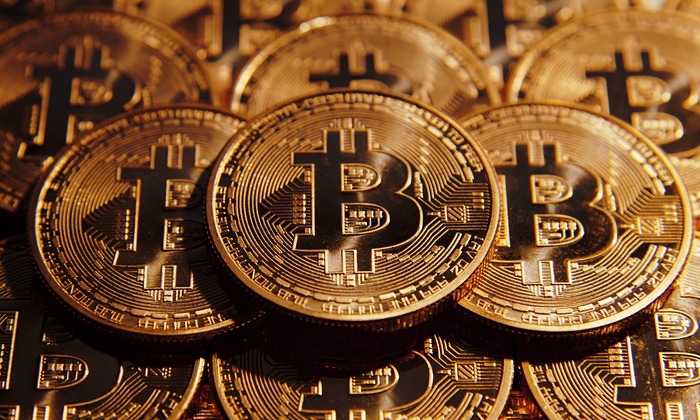Income inequality, the disparity in earnings and wealth distribution among individuals and households, remains a pressing global issue. The gulf between the rich and the poor continues to widen, especially in developing countries, where millions struggle to access financial services and opportunities.
In this article, we will explore how Bitcoin, a decentralized digital currency, is playing a significant role in reducing income inequality in the developing world. In addition, you can find an investment education company to start your learning journey by visiting https://vortex-momentum.com.
Bitcoin and Financial Inclusion
The Unbanked and Underbanked Populations in the Developing World
In many developing countries, a substantial portion of the population remains unbanked or underbanked. These individuals lack access to basic financial services such as bank accounts, loans, and savings accounts. This exclusion exacerbates income inequality by preventing people from participating fully in the formal economy.
How Bitcoin Can Provide Financial Services to the Underserved
Bitcoin’s decentralized nature allows individuals to have full control over their financial assets without the need for intermediaries like banks. Through a smartphone or computer with internet access, even the most remote and disadvantaged individuals can create Bitcoin wallets, receive payments, and make transactions. This democratization of financial services has the potential to bridge the gap between the unbanked and the global economy.
Case Studies of Bitcoin’s Impact on Financial Inclusion
Examples from countries like Kenya, where the M-Pesa mobile payment system has already improved financial inclusion, show that digital currencies can make a substantial impact. Bitcoin adoption has the potential to replicate these successes on a broader scale, providing access to financial services for millions.
Remittances and Bitcoin
The Importance of Remittances in Developing Economies
Remittances, funds sent by migrant workers to their families in their home countries, constitute a significant source of income for many developing economies. These funds are often a lifeline for recipient households and can significantly contribute to poverty reduction.
High Transaction Costs and Delays Associated with Traditional Remittance Methods
Traditional remittance channels are plagued by high fees and slow transaction times. Money transfer companies and banks charge substantial percentages of the remitted amount, leaving recipients with less money to cover their needs. Moreover, the lengthy process of cross-border transfers can be a burden for families awaiting financial support.
How Bitcoin Can Revolutionize Cross-Border Remittances
Bitcoin offers a solution to these issues. It allows for near-instant, low-cost cross-border transactions, cutting out intermediaries and ensuring more of the sender’s money reaches the intended recipient. The adoption of Bitcoin in remittances can contribute significantly to reducing income inequality by enhancing the financial resources of recipient households.
Economic Empowerment Through Bitcoin
Microtransactions and Entrepreneurship Opportunities
Bitcoin’s divisibility enables microtransactions, allowing users to buy and sell goods or services in smaller denominations. This feature empowers individuals to engage in entrepreneurial activities, even with minimal capital. In developing countries, this can lead to the creation of small businesses and income-generating opportunities.
The Rise of Bitcoin-Based Businesses in Developing Countries
Several developing nations have seen the emergence of Bitcoin-based businesses that cater to local needs. These businesses range from Bitcoin exchanges and remittance services to payment processors and e-commerce platforms. They not only stimulate economic growth but also promote financial inclusion.
Empowering Individuals to Take Control of Their Financial Future
By using Bitcoin, individuals in developing countries can have greater control over their financial future. They can safeguard their assets from inflation and currency devaluation, diversify their investments, and participate in global financial markets without relying on traditional banking systems.
Challenges and Risks
Regulatory Hurdles and Legal Uncertainties
The regulatory environment for cryptocurrencies varies widely across countries. Some governments have embraced Bitcoin, while others have imposed strict regulations or outright bans. Navigating these regulatory challenges is essential for the sustainable adoption of Bitcoin in the developing world.
Volatility and Price Fluctuations
Bitcoin’s price volatility can pose risks for individuals who use it as a store of value or for transactions. Sudden price fluctuations can lead to losses, affecting those who can least afford them. Financial education and the development of stablecoin solutions are essential to mitigate this risk.
Security Concerns and Fraud Risks
Ensuring the security of Bitcoin holdings is crucial, as individuals in the developing world may be vulnerable to scams and fraud. Promoting proper security practices, such as using hardware wallets and educating users about potential threats, is essential to protect against these risks.
Conclusion
In conclusion, Bitcoin has the potential to significantly reduce income inequality in the developing world by providing financial inclusion, revolutionizing remittances, and empowering individuals economically.
However, it also faces regulatory challenges, price volatility, and security risks that must be addressed for sustainable adoption. As we continue to explore Bitcoin’s role in addressing income inequality, responsible adoption and regulation will be crucial in harnessing its full potential in the fight against global economic disparities.


